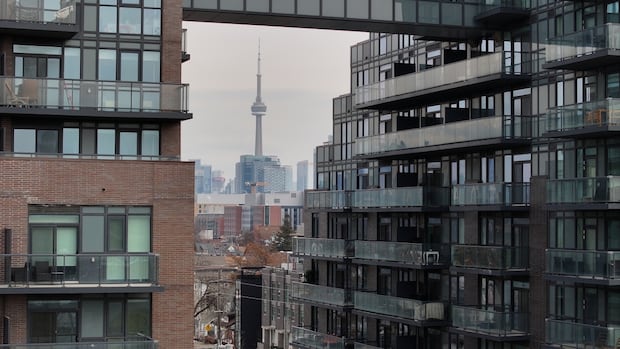The agency that operates government-owned public housing in Nova Scotia says 222 of its 12,000 households are on fixed-term leases, raising alarm bells for one lawyer.
A fixed-term lease is a type of rental agreement that ends on a set date and does not automatically renew, allowing landlords to turn over tenants without showing cause or going through an eviction process.
Some landlords say they allow for a low-risk probationary period for tenants with poor rental histories, but tenant advocates have criticized them for eliminating security of tenure.
Nora MacIntosh, a staff lawyer with Nova Scotia Legal Aid, says she was surprised to learn the Nova Scotia Provincial Housing Agency is employing this type of lease, as it "goes against what public housing stands for, which is to provide safe, stable and supportive housing."
MacIntosh said she worries tenants are being asked to sign this type of lease as a way to skirt the formal eviction process, putting vulnerable, low-income people at higher risk of losing their housing.
 Nora MacIntosh said she was surprised to discover fixed-term leases are being used by the provincial housing agency. (Dan Jardine/CBC)
Nora MacIntosh said she was surprised to discover fixed-term leases are being used by the provincial housing agency. (Dan Jardine/CBC)CBC News discovered the use of fixed-term leases by the provincial housing agency in a spring 2025 briefing note prepared for Jill Balser, the minister in charge of the province's residential tenancies program. CBC obtained the briefing note through a freedom of information request.
A spokesperson for the agency confirmed this type of lease is used for around three per cent of households.
"This practice has been used sparingly within the public housing program since 2003, typically to provide second chances for applicants who are ineligible due to rental arrears, behavioural issues, or lack of a landlord reference," Kelli MacDonald wrote in an email.
MacIntosh said this is "concerning for a number of different reasons," including "exploiting the power imbalance between landlords and tenants by misusing fixed-term leases."
CBC asked for an interview with Pamela Menchenton, the director of client services at the Nova Scotia Provincial Housing Agency, but she was not available for comment.
'Probationary period'MacIntosh said fixed-term leases should be used when they are mutually agreed upon by a landlord and tenant, not as a "probationary period."
She said with the waitlist for this type of housing now at 8,200 people, many are desperate for an affordable place to live and will sign any lease they are offered.
"By using fixed-term leases as a probationary period, especially for folks who are marginalized who are likely relying on public housing as a last resort, creates housing insecurity because it doesn't provide them with security of tenure," she said.
"And so once the lease ends, the public housing agency can simply terminate the lease and not renew without any oversight or accountability."
MacIntosh said in order to evict a tenant on a periodic lease that automatically renews, any landlord — including the housing agency — would have to go through the residential tenancies program eviction process and prove there are issues with the tenant.
 A public housing development in Spryfield, N.S., is shown in January 2020. (David Laughlin/CBC)
A public housing development in Spryfield, N.S., is shown in January 2020. (David Laughlin/CBC)The housing agency denies the leases are being used this way, saying it is a way to provide "a second chance to be safely rehoused."
"Our hope is to transition any household on a fixed-term lease to a periodic lease once their term is up. Tenants typically live in public housing for many years on a periodic lease, and eviction is always a last resort," wrote spokesperson Emily Richardson in an email.
Most fixed-term leases in Cape BretonAccording to numbers released to CBC News through another freedom of information request, most of the public housing tenants on fixed-term leases are in Cape Breton.
Among the 222 households in total, 175 are in Cape Breton, 39 are in the metro region and eight are in the western region. Their lease lengths vary between five months and 57 months.
Richardson said this "gap in policy" is because the five separate housing authorities that existed before the Nova Scotia Provincial Housing Agency was created used fixed-term leases on a case-by-case basis.
Richardson said the agency now has an updated policy that "ensures consistent application of fixed-term leases across the province."
She said the policy dictates the reasons a fixed-term lease may be used, and regulates that it can only be used for 12 months.











